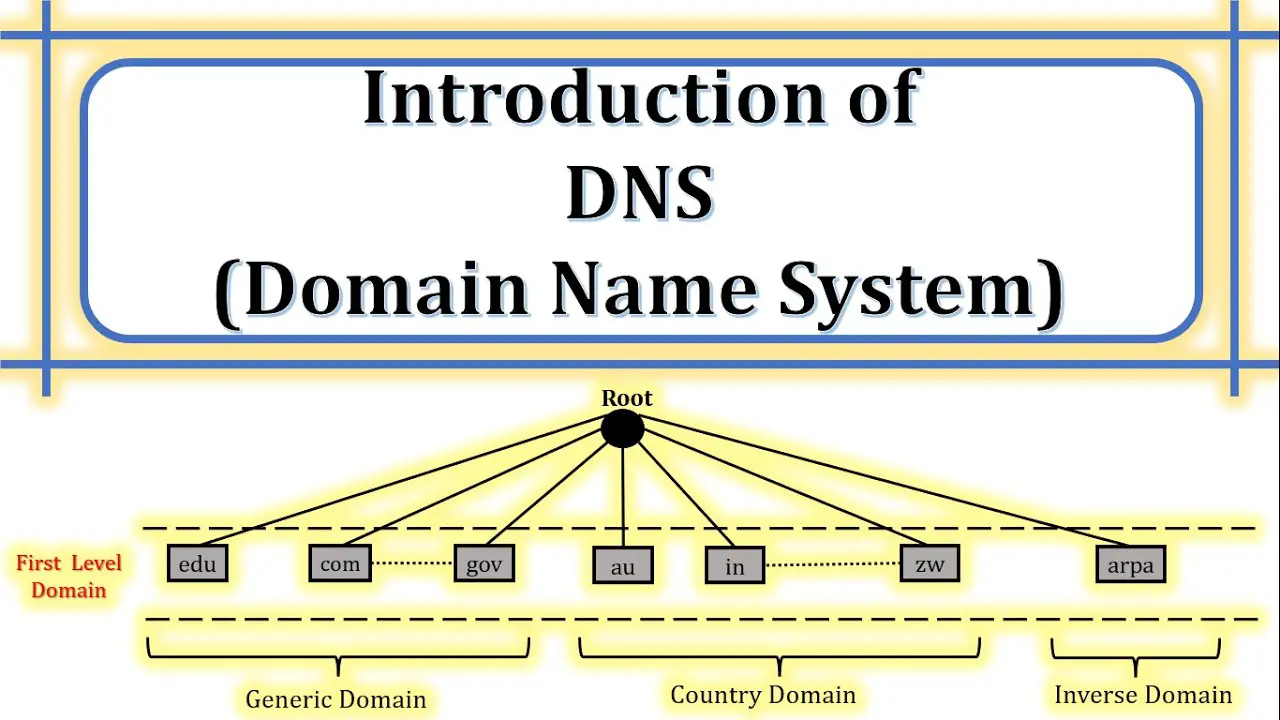Future Perspectives and Career Opportunities for International Students in the USA encompass a broad range of possibilities and considerations. As globalization continues to shape economies and industries, international students in the USA can anticipate diverse career pathways and growth prospects. These students often bring unique perspectives, cultural insights, and language skills that are increasingly valued in the global marketplace. In the USA, international students have access to a vast array of academic programs and institutions renowned for their excellence and innovation. Upon graduation, they can explore opportunities across various sectors, including technology, finance, healthcare, academia, and entrepreneurship. The USA’s dynamic job market offers opportunities for professional development, networking, and advancement, leveraging the country’s vibrant economy and diverse workforce. Moreover, the USA’s commitment to research and development fosters an environment conducive to innovation and creativity, presenting international students with prospects to contribute to cutting-edge projects and advancements in their respective fields. Additionally, many American companies actively seek to diversify their talent pool, offering internships, fellowships, and employment opportunities tailored to international students’ skills and backgrounds. Overall, the future perspectives and career opportunities for international students in the USA are promising, characterized by flexibility, innovation, and the potential for impactful contributions to the global economy and society.
Future Perspectives for International Students in USA
In recent decades, the United States has been a magnet for international students seeking higher education opportunities. Renowned for its academic excellence, diverse campuses, and opportunities for personal and professional growth, the USA has long been a top destination for students worldwide. However, the landscape for international students is continuously evolving, influenced by geopolitical shifts, economic dynamics, technological advancements, and policy changes. As we look ahead, it’s essential to explore the future perspectives for international students in the USA, examining challenges, opportunities, and strategies for success.
The Current Landscape
The USA has historically been a leader in higher education, with its universities consistently ranking among the best globally. Institutions such as Harvard, MIT, Stanford, and many others attract top talents from around the world, fostering innovation, research, and academic excellence. For international students, studying in the USA offers access to cutting-edge resources, world-class faculty, and a diverse community of scholars. However, the journey for international students is not without challenges. One significant concern is the cost of education. Tuition fees and living expenses in the USA can be prohibitively high, placing a considerable financial burden on students and their families. Moreover, navigating the complex visa process, adapting to a new culture, and dealing with potential language barriers present additional hurdles for international students. Furthermore, recent political developments have introduced uncertainties for international students. Changes in immigration policies, visa regulations, and geopolitical tensions have raised concerns about the welcoming environment for international students in the USA. The COVID-19 pandemic added another layer of complexity, disrupting travel plans, imposing health restrictions, and shifting academic formats to remote or hybrid models.
Despite these challenges, international students continue to flock to American universities, driven by the pursuit of knowledge, career opportunities, and cultural experiences. The resilience and determination of these students reflect their unwavering commitment to academic and personal growth in the face of adversity.
Future Perspectives
Looking ahead, the future for international students in the USA is both promising and challenging. Several key trends and developments shape the landscape and offer insights into what lies ahead:
- Digital Transformation: The ongoing digital revolution is reshaping higher education, offering new avenues for learning, collaboration, and innovation. Online platforms, virtual classrooms, and digital resources provide unprecedented access to educational content, enabling international students to engage with their studies from anywhere in the world. As technology continues to advance, hybrid learning models that blend online and in-person experiences are likely to become more prevalent, offering flexibility and scalability for students.
- Diversity and Inclusion: American universities are increasingly prioritizing diversity, equity, and inclusion initiatives, recognizing the importance of creating welcoming and supportive environments for all students, regardless of their backgrounds. International students contribute to the rich tapestry of cultural diversity on campus, bringing unique perspectives and experiences that enrich the academic community. As institutions strive to foster inclusive environments, international students can expect greater support and resources to thrive academically and socially.
- Global Mobility and Collaboration: Despite geopolitical tensions and nationalist sentiments in some quarters, the importance of global collaboration and mobility in higher education cannot be overstated. Universities are expanding their international partnerships, exchange programs, and research collaborations, facilitating the free flow of ideas, talents, and expertise across borders. International students play a pivotal role in these networks, serving as ambassadors for cross-cultural understanding and collaboration. As global challenges become increasingly interconnected, the need for international cooperation in education and research will only grow.
- Career Opportunities and Immigration Policies: The post-graduation prospects for international students hinge significantly on immigration policies and work opportunities in the USA. While the Optional Practical Training (OPT) program allows international students to gain valuable work experience after graduation, uncertainties surrounding visa regulations and work permits remain a concern. The USA’s ability to attract and retain international talent depends on its ability to create pathways for skilled professionals to contribute to the economy and society. Advocacy efforts, policy reforms, and industry partnerships are essential to address these challenges and ensure that international students can pursue fulfilling careers in the USA.
- Resilience and Adaptability: Perhaps the most enduring trait of international students is their resilience and adaptability in the face of adversity. From navigating cultural differences to overcoming academic challenges, international students demonstrate remarkable resilience in pursuing their goals and aspirations. As they confront the uncertainties of the future, international students will continue to draw upon their resourcefulness, creativity, and perseverance to thrive in a rapidly changing world.
Strategies for Success
In navigating the future landscape of higher education in the USA, international students can adopt several strategies to enhance their academic and professional journey:
- Build a Support Network: Cultivate relationships with peers, faculty members, advisors, and mentors who can provide guidance, support, and encouragement throughout your academic journey.
- Engage in Campus Life: Take advantage of extracurricular activities, student organizations, and cultural events to enrich your college experience, build connections, and develop leadership skills.
- Seek Professional Development Opportunities: Explore internship programs, research projects, and career development workshops to gain practical experience, expand your skillset, and enhance your employability.
- Stay Informed and Advocacy: Stay informed about immigration policies, visa regulations, and advocacy efforts that impact international students. Get involved in advocacy initiatives and support organizations that promote the interests of international students.
- Embrace Diversity and Inclusion: Embrace diversity and foster cross-cultural understanding by engaging with people from different backgrounds, perspectives, and experiences. Celebrate cultural diversity and promote inclusivity in your academic and social interactions.
- Explore Alternative Pathways: Consider alternative pathways to achieve your academic and career goals, such as online courses, certificate programs, and entrepreneurial ventures. Be open to exploring diverse opportunities that align with your interests and aspirations.
As international students embark on their educational journey in the USA, they face a dynamic and evolving landscape shaped by technological, social, and geopolitical forces. While challenges and uncertainties abound, so too do opportunities for growth, innovation, and collaboration. By embracing resilience, adaptability, and a spirit of exploration, international students can navigate the complexities of higher education with confidence and determination. As they contribute their talents, perspectives, and aspirations to the global community, international students play a vital role in shaping the future of education and advancing shared goals of knowledge, understanding, and progress.
Career Opportunities for International Students in USA
In recent years, the United States has solidified its position as a global hub for higher education, attracting students from every corner of the world. The allure of top-notch academic institutions, cutting-edge research facilities, and a diverse cultural landscape has made the USA a preferred destination for international students. However, as these students embark on their educational journeys, an equally crucial aspect looms large – the pursuit of rewarding career opportunities post-graduation.
This article delves into the myriad career prospects awaiting international students in the USA, shedding light on the evolving job market, the importance of networking, and the role of specialized skills in securing coveted positions.
The Evolving Landscape of the Job Market
The landscape of the job market in the USA is dynamic and responsive to global economic trends. For international students, understanding the nuances of this ever-changing environment is crucial for making informed career choices.
- STEM Fields: The demand for professionals in Science, Technology, Engineering, and Mathematics (STEM) fields continues to soar. International students with degrees in computer science, engineering, data science, and related disciplines find themselves in high demand. Companies are actively seeking individuals with expertise in areas such as artificial intelligence, cybersecurity, and machine learning, making STEM fields a fertile ground for career growth.
- Healthcare Sector: The ongoing global health challenges have highlighted the significance of the healthcare sector. International students pursuing degrees in medicine, nursing, public health, and related fields are witnessing increased demand for their skills. The USA’s healthcare industry is diverse, offering opportunities in research, patient care, administration, and more.
- Business and Finance: The USA’s status as a global economic powerhouse ensures a thriving business and finance sector. International students with degrees in business administration, finance, economics, and related fields find numerous opportunities in multinational corporations, financial institutions, and consulting firms. The ability to navigate international business dynamics is particularly valuable.
- Green Jobs and Sustainability: The growing emphasis on sustainability has given rise to a burgeoning green job market. International students with backgrounds in environmental science, renewable energy, and sustainable development are well-positioned to contribute to the country’s environmental goals. Companies across industries are increasingly adopting eco-friendly practices, creating opportunities for those with expertise in sustainability.
Networking: A Gateway to Opportunities
While academic excellence is undoubtedly a significant factor, the power of networking cannot be overstated when it comes to securing career opportunities. For international students, building a strong professional network is essential for gaining insights into industry trends, accessing job openings, and receiving mentorship.
- Utilizing University Resources: Most universities in the USA offer robust career services that provide guidance on resume building, interview preparation, and job search strategies. International students should actively engage with these resources, attending career fairs, workshops, and networking events to connect with industry professionals and potential employers.
- Online Platforms and Professional Associations: Leveraging online platforms like LinkedIn can open doors to a vast network of professionals in various fields. Joining professional associations related to one’s field of study can also provide opportunities to attend conferences, workshops, and connect with like-minded individuals. These connections can be invaluable when seeking advice, mentorship, or job referrals.
- Internships and Co-op Programs: Participating in internships and cooperative education programs during the academic journey not only provides hands-on experience but also facilitates networking with industry professionals. Many companies use internships as a pipeline for hiring full-time employees, making it a strategic way for international students to secure job offers.
Specialized Skills: A Competitive Edge
In a competitive job market, possessing specialized skills can set international students apart from their peers. Acquiring skills that align with industry trends and emerging technologies enhances employability and opens doors to a broader array of career opportunities.
- Language Proficiency: Strong communication skills are a cornerstone of professional success. International students who can effectively communicate in English, both verbally and in writing, have a distinct advantage. Investing time in language proficiency through language courses, workshops, and practice can significantly enhance employability.
- Technical Proficiency: In fields such as computer science, engineering, and data science, proficiency in programming languages, software development, and other technical skills is highly valued. Continuous learning and staying abreast of technological advancements ensure that international students remain competitive in these rapidly evolving fields.
- Cross-Cultural Competence: The ability to work in diverse, multicultural environments is increasingly important in today’s globalized world. International students bring a unique perspective and cultural competence to the workplace, making them valuable assets for companies with a global footprint.
- Adaptability and Resilience: Flexibility and resilience are qualities highly regarded by employers. International students, often navigating a new culture and educational system, develop adaptability and resilience. Highlighting these experiences in resumes and interviews showcases the ability to thrive in diverse and challenging environments.
Challenges and Solutions
While the USA offers abundant career opportunities for international students, it’s essential to acknowledge the challenges they may encounter. Visa regulations, cultural adjustments, and competition for jobs are some of the hurdles that may arise. However, proactive measures can be taken to mitigate these challenges.
- Navigating Visa Regulations: Understanding the nuances of the U.S. visa system is crucial for international students seeking employment opportunities. Utilizing Optional Practical Training (OPT) and STEM OPT extensions allows graduates to work in their field of study for an extended period. Staying informed about visa regulations and seeking guidance from university international student services can help navigate these complexities.
- Cultural Adjustment: Adapting to a new culture and work environment can be challenging. Joining cultural exchange programs, participating in local community activities, and seeking support from international student organizations can ease the process of cultural adjustment. Building a support system with fellow international students and local peers fosters a sense of belonging.
- Job Search Strategies: The competitive job market necessitates strategic job search approaches. Crafting a compelling resume, tailoring job applications to specific roles, and leveraging personal and professional networks are essential strategies. Seeking guidance from career services, alumni, and industry professionals can provide valuable insights into effective job search techniques.
For international students in the USA, the pursuit of rewarding career opportunities is a journey that intertwines academic achievements, networking prowess, specialized skills, and resilience. As the job market continues to evolve, staying attuned to industry trends, building a robust professional network, and honing specialized skills are essential steps towards a successful career. The United States, with its diverse and dynamic economy, remains an attractive destination for those seeking to not only attain a world-class education but also carve out a fulfilling career path. The challenges faced by international students are surmountable with the right mindset, preparation, and a proactive approach to career development. In the end, the narrative of international students in the USA is not merely about obtaining a degree but about embracing a transformative experience that extends beyond the classroom – a journey that culminates in the pursuit and realization of promising and fulfilling career opportunities.
Conclusion
The future perspectives and career opportunities for international students in the USA present a promising landscape. The dynamic nature of the American economy, coupled with its diverse industries and innovation hubs, creates an environment conducive to professional growth. With a robust education system that fosters critical thinking and practical skills, international students gain a competitive edge in the global job market. Furthermore, the United States’ commitment to attracting and retaining talent through programs like Optional Practical Training (OPT) provides avenues for international graduates to gain hands-on work experience and bridge the transition from academia to the professional realm. The cultural diversity and inclusive work environments in the USA contribute to a rich tapestry of ideas and perspectives, enhancing the overall learning and career experience for international students. As industries continue to evolve, particularly in fields such as technology, healthcare, and renewable energy, international students in the USA can leverage their cross-cultural skills and education to contribute meaningfully to cutting-edge developments. Overall, the future for international students in the USA appears promising, offering a plethora of career opportunities and avenues for personal and professional development.







Leave a Reply